Recalled: Triathlon’s Original Maverick
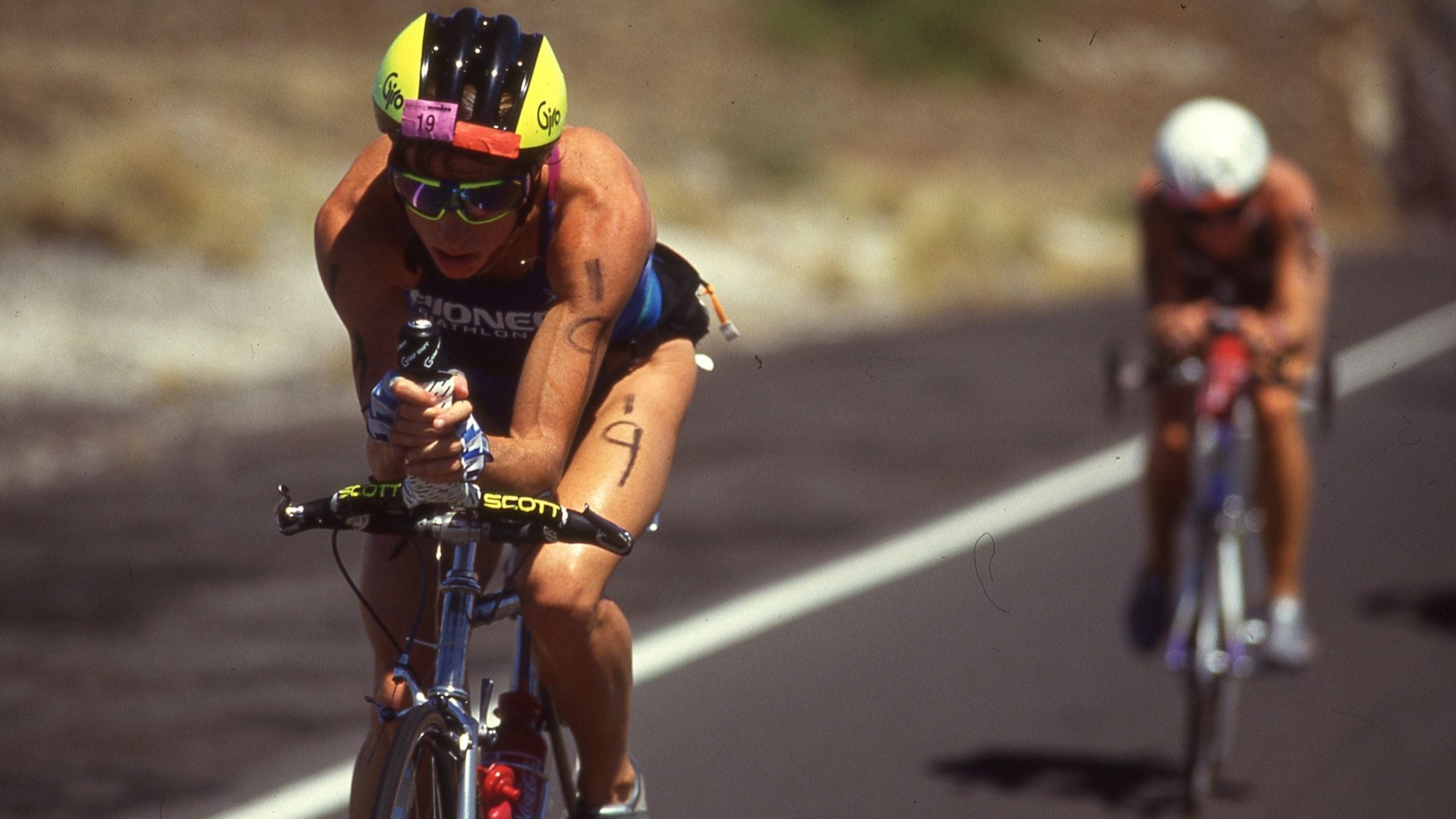
(Photo: Lois Schwartz)
Growing up in Kaiapoi, New Zealand, during the 1960s, Erin Baker learned to confidently speak her mind from an early age. One of seven red-headed Baker children—first, five girls, then two boys—she used her voice to be heard in a chaotic, vibrant, and progressive household. “My mother was a very strong woman, and my father was an incredibly supportive man. They taught me about justice and fairness,” she says. “I was instilled at an early age to be outspoken and to stand up for what I believed in.”
This was evident throughout her time as a pro triathlete, which lasted roughly from 1985 to 1994. Baker was known as much for speaking out against various injustices as she was for winning. And she won a lot: Baker topped the podium in roughly 90% of the races she entered, including the Ironman World Championships in 1987 and 1990. For Baker, publicly vocalizing her opinion when she disagreed with something—whether it was inequal pay for women, a questionable race sponsor, or apartheid—seemed to come as effortlessly as running 6:30 pace in an Ironman marathon.
Proud of her contributions to the sport, but quick to diminish her individual success (“That was so long ago, I doubt many people even know who I am or what I did,” she says), Baker, now 61, reluctantly accepts her role as an innovator in triathlon. Here, she shares more about some of her most game-changing moments—and her recent return to the sport as a Collins Cup captain after a decades-long hiatus from the spotlight.
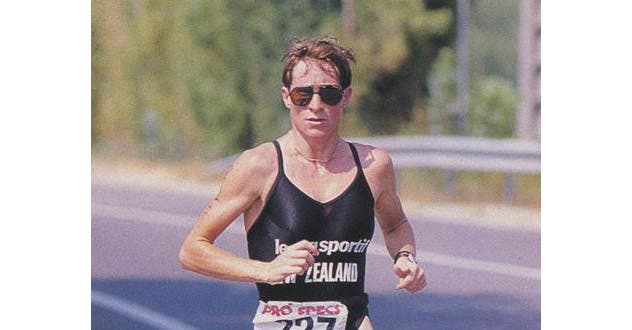
Triathlete: One of your most renowned accomplishments is successfully demanding equal pay in triathlon, which you did at the inaugural ITU World Championship in 1989 in Avignon, France. Had you experienced any inequality in the sport prior to this that prompted you to speak up?
Erin Baker: I’m not going to say I ever suffered in the sport because I am a woman. That certainly wasn’t the case. In fact, when I first started racing triathlon in the 1980s, I was actually thrilled that there was actually a place for women to even race—this wasn’t too long after Katherine Switzer was pulled from the Boston Marathon course for simply being a woman who wanted to run 26.2 miles. So I went into the sport grateful, with no expectations to make money. But as I got more into racing, there were little moments here and there that gave me pause. Once, I went to a race in Australia and I found out that Scott Tinley and [my now husband] Scott Molina were put up at the same hotel where Elton John was staying. I was not offered a room there. But then again, I didn’t think much of it. They were part of the big four, and our rock stars in the sport. I didn’t put myself on the same platform as them.
Later, I went to another race where the event organizers offered equal prize money, but also a car to the “first person across the line.” That was ridiculous! It was always going to be a man. But at the same time, I went to races where there was an equal prize purse, which was unheard of in the world of sports. And I had wonderfully progressive sponsors who supported me as a triathlete, period, and not just as a woman who did triathlon.
As I became successful and won the big races, I grew more emboldened. I boycotted races. I used my voice. I saw the podium as a privilege and a platform to create change.
RELATED: Erin Baker: Rebel Without a Cause
Triathlete: Which is what you did in Avignon, famously going toe-to-toe with ITU President Les McDonald. Was there any pushback from other triathletes, male or female, for stirring things up?
EB: No, I can’t recall anyone grumbling about me. Most women had the simple wish of being paid equally, and the male pros supported that. They saw how much we trained, how much hard work we’d put in. We were doing equally as much as them. So at that particular time, there was not much pushback at all.
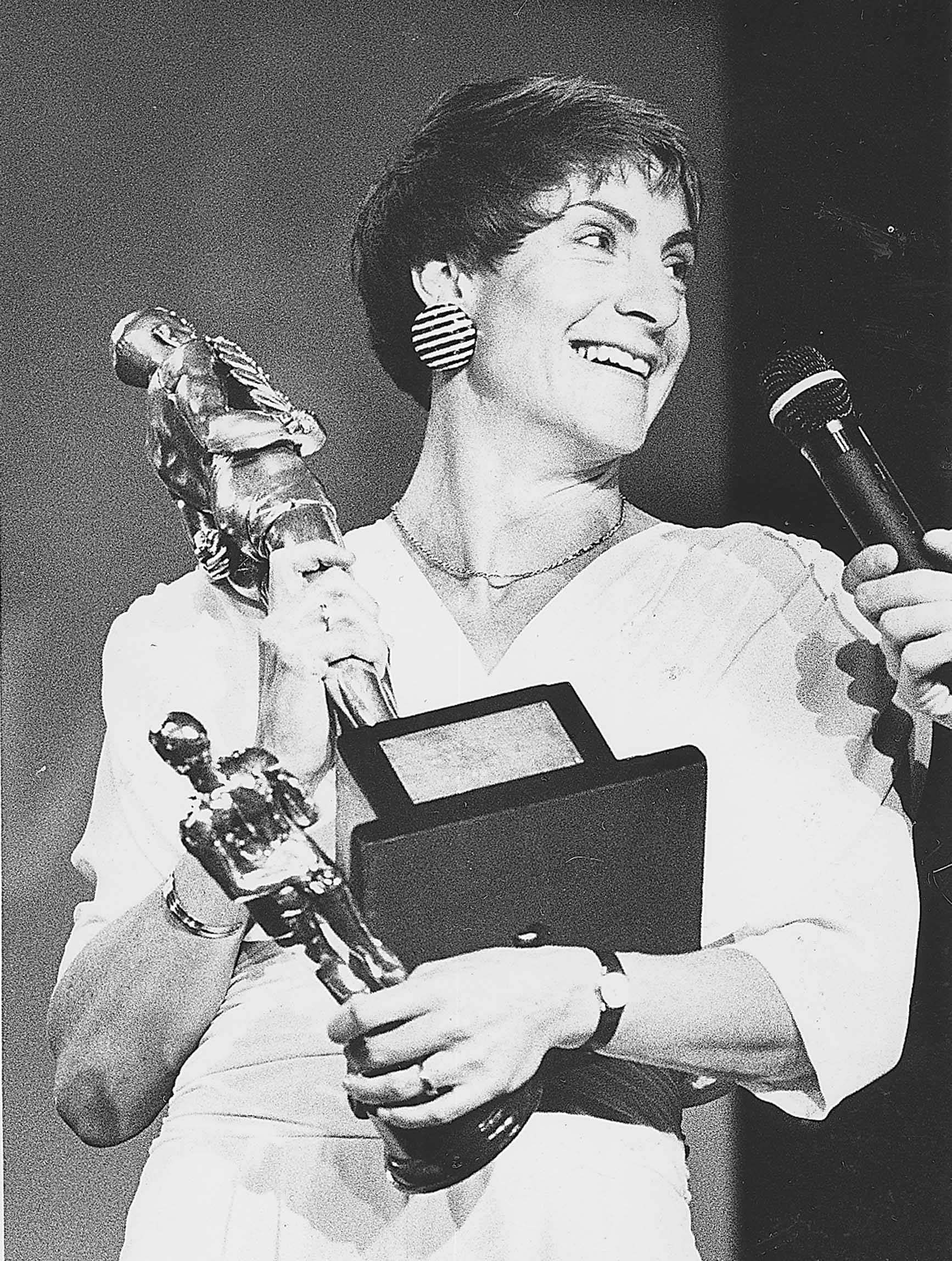
Triathlete: What about a time when you did experience negative implications for speaking up?
EB: There were a couple of instances. The big one was me being arrested for participating in anti-apartheid demonstrations in New Zealand, where I protested the South African rugby team playing in our country. At time time, South Africa was still in an apartheid regime. I got arrested at a demonstration and charged in association with that, which led me to being banned from competing in the United States for five years due to visa issues. I probably lost my job as a radiographer in the hospital because of it, too. My boss didn’t like that I was in the newspaper for being arrested.
RELATED: The Rivalry That Changed Women’s Triathlon Forever
Another time, in 1989, I wrote a strongly-worded letter to the triathlon community about alcohol use in sport. In the 1980s, many races were sponsored by beer companies, and it encouraged heavy drinking in triathlon—like at the post-race parties. I didn’t think that was right, or a good representation of the sport. That letter did not go down well. I actually won Sportsperson of the Year in New Zealand that year, which is a very big deal. Typically, the winners give a speech and it’s televised and everything. But they wouldn’t let me have the microphone. I guess they were worried about what I’d say.
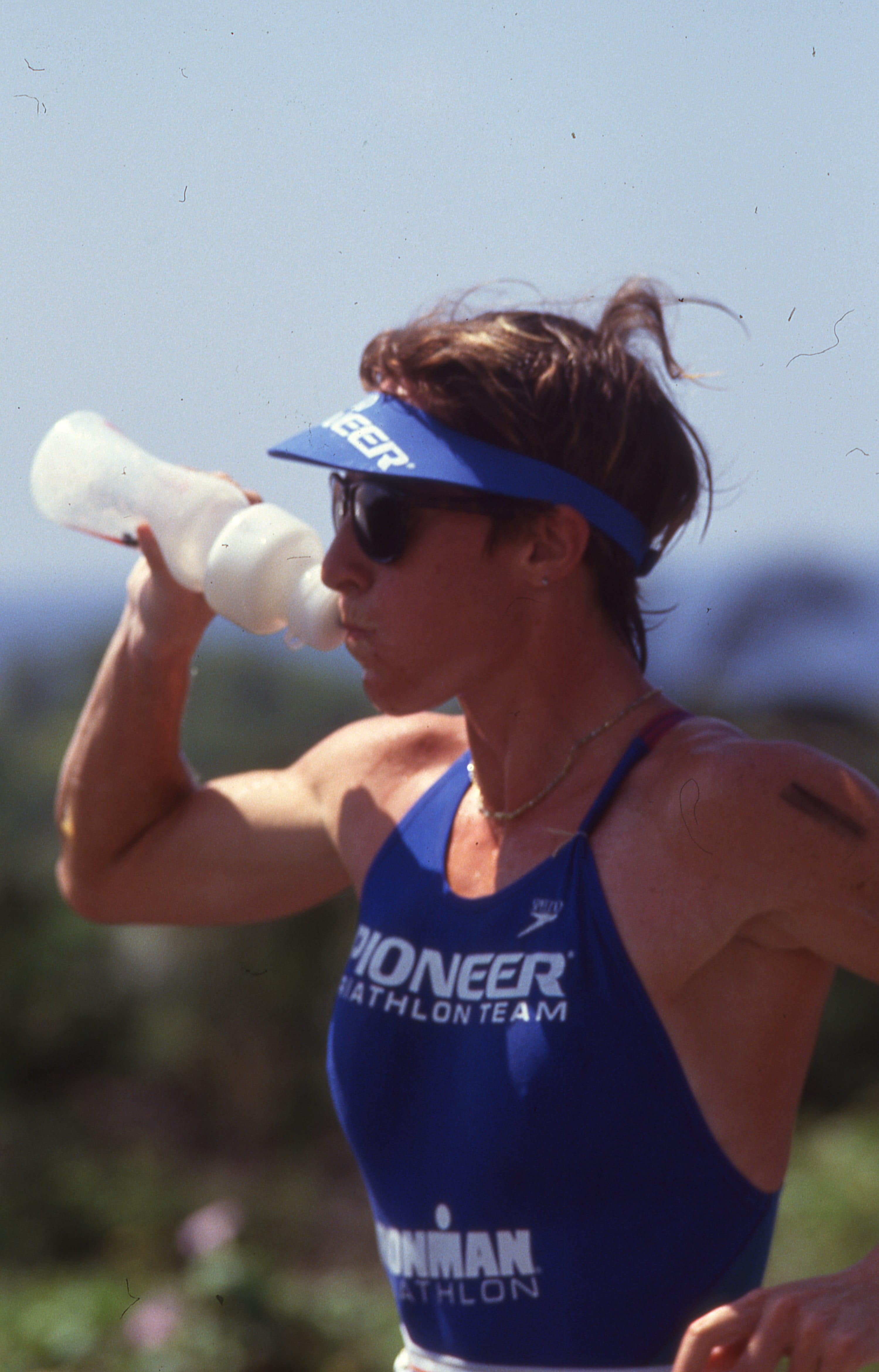
Triathlete: Looking back, is there one accomplishment on or off the triathlon course that you’re most proud of?
EB: My life has become what it is because of my success in triathlon. It’s made me the person I am and gave me incredible opportunities. But it never defined me. I can say, yeah I won this and that, but does anyone still care? I never dwelled on my career after I retired. I moved on, had my family, and had a career. I’m way more proud of what I’ve done since: Helping others, getting involved in local politics and running my own company.
Triathlete: After years away from the triathlon arena, you recently returned as the Team Internationals Captain at the Collins Cup. So much has changed in the sport since you left in the mid-90s—what surprised you the most?
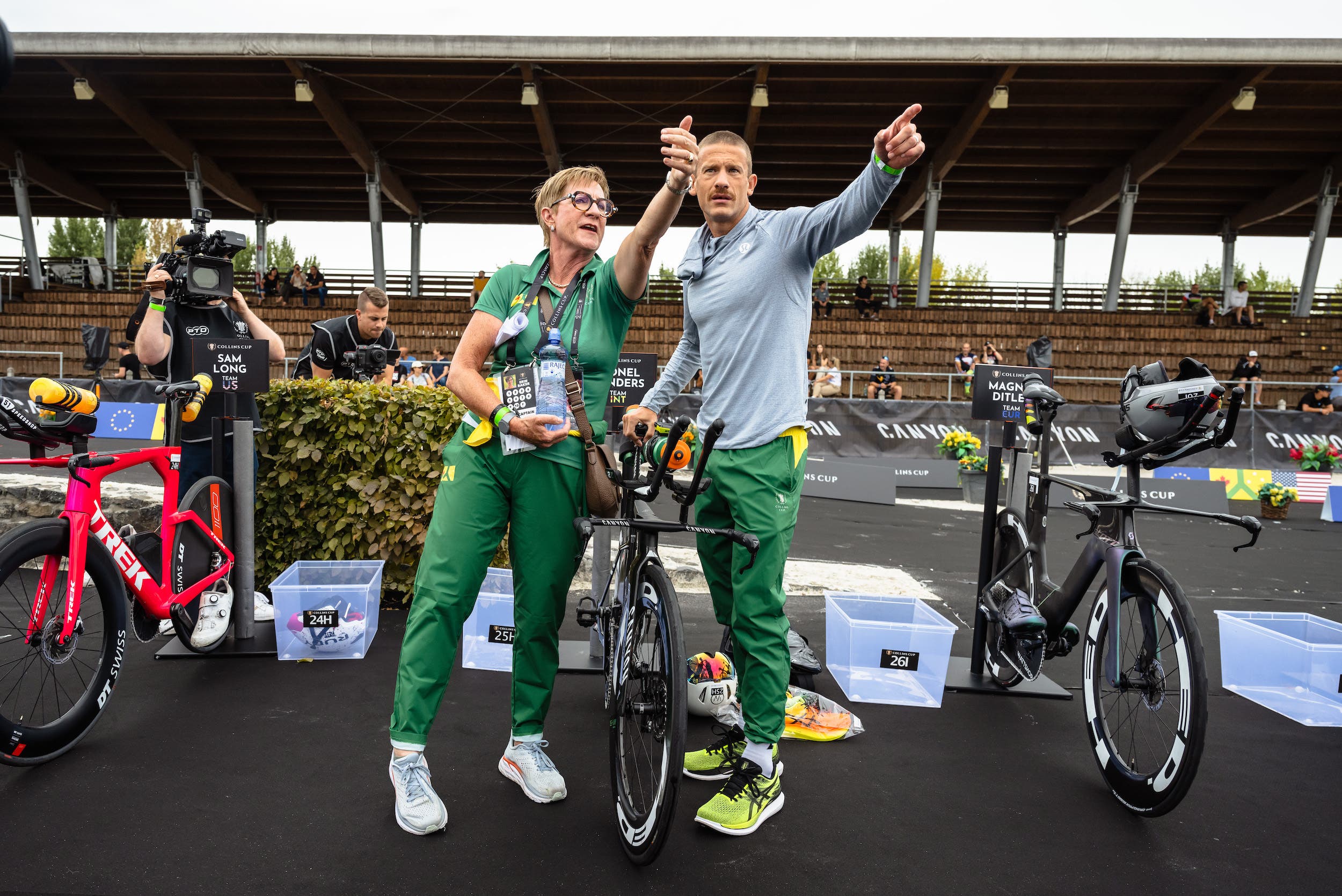
EB: The science of it all. These athletes’ physiology is being monitored 24/7 and their data determines how they train. I would have hated that as an athlete. I was not into data or anything like that. I had one competitor back in the day who was reliant on heart-rate training. I found it comical: I didn’t pay attention to my heart rate and I still won! But now, you really have to be tuned in to technology.
Another thing is the presence of social media. I had some athletes tell me that they make more money off their YouTube channel and Instagram than they do in races. It blows me away that athletes have their own videographers and there’s so much focus on what they put out there. Content is front and center in the sport.
Triathlete: So we won’t see Erin Baker on TikTok anytime soon?
EB: No, I made a choice long ago. I’m not afraid to use my voice, but social media is not for me.